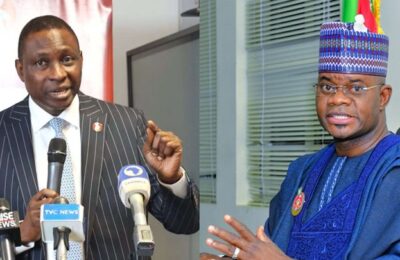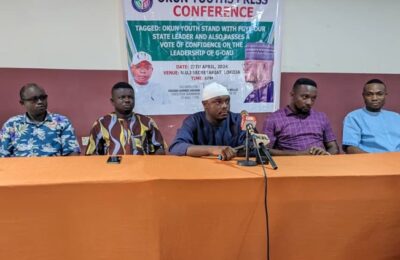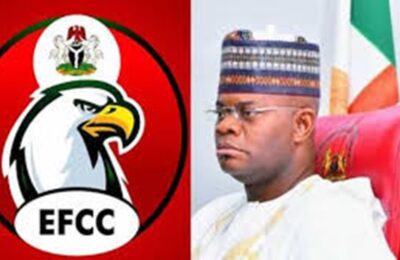Those who think and believe that Mr. Bola Tinubu, the Nigerian president will improve his country’s economy by creating jobs and reducing poverty, will remain in the eternal wish, as that will not happen under him.
Mr. Tinubu makes no pretense about his alignment with the neo-liberal model of development. His policies support a naked neo-liberal capitalist system. And the economists and free market fundamentalists have continued to hail him as a man with the big balls to have followed that path.
But, here is the big issue the market fundamentalists and neo-liberal propagandists are not telling Tinubu. They have refused to tell him the bitter truth that Neoliberalism only favours and pushes for more markets and cares less about governance.
The trouble with the economists that propagate market fundamentalists using the neo-liberal model is that they imagine in their heads that economics is a science that does not need the application of common sense. They believe that an advanced capitalist system in the guise of a neoliberal model is a magic solution to building economic viability without consideration of peculiar circumstances of applicability.
Tinubu’s economic policies that are capitalist driven, that allow decisions to be made by private individuals who are comprador bourgeoisie and firms, cannot provide a platform that will build a viable economy that will reduce poverty and inequality, NO, it will not. This is solely because the basic laws of capitalism are profit-making maximization and exploitation. Capitalism which the Tinubu government favours has no place for citizens’ welfare, it’s all about the market and profits.
China’s economic success has since proven the neoliberal model to be faulty thinking as a model for economic growth and development. China followed an orthodoxy model that defied the neoliberal market fundamentalist prescription. Yes, China embraced markets but did not copy them from the standpoint of the neoliberal prescription.
Although China took from the market incentive which the neoliberal favours, she did so through radical reforms and unusual institutional tinkering within her local context. Rather than allow the state to private ownership the neoliberal favours, she relied on mixed reforms that allowed for citizens’ empowerment that triggered entrepreneurial development.
In the 1980s, China in the pursuit of viable economic reform, introduced Township and Village Enterprises (TVEs) which allow for collective ownership and control of enterprises by the local governments. The TVEs were publicly owned, and the local governments had a direct stake in profit and control.
Tinubu government must learn from China. The country protected its large state sector from global competition, China put in place exceptional economic zones where foreign companies could function with different guidelines than in the rest of her economy. Considering China’s action regarding the neoliberal prescription, it would be a deliberate distortion of intellectual fact to say China relied on the neoliberal model to build a viable economy she enjoys and now projects itself as a global economy giant.
Tinubu and his team must come to terms that China and countries that have built viable competitive economies did that within their local context and not by embracing the neoliberal model. The facts are there for us to see, countries whose leaders violate local context and initiative and embrace neoliberalism have their economy shattered with high rates of poverty and inequality.
What Tinubu and his team have since failed to understand and acknowledge is that economics is not abstract, but principally common-sense principles. They think what they are doing is creating an atmosphere for economic growth. But, they fail to understand that progress in economics is based on the application of economic logic within the local context that serves the targeted beneficiaries, largely the majority of the citizens.
The neoliberal propagandists who are making those in political power think market and forget governance, often think they have a common solution to all economic challenges. They failed to understand that we have different approaches depending on the nature of the problem at hand. For instance, those traveling on motorbikes, need a map for bike trails, those on foot need a map for footpaths and those on airplanes need a flight compass. Therefore, prescribing a neoliberal model for an economy like Nigeria with a huge number of poor citizens and a lack of basic amenities is a mere abstract that has no economic sense.
Tinubu and his team may be good at making policies and choosing economic models, but unfortunately, they are not good at choosing one that is most appropriate for the problem at hand. Their neoliberal laissez-faire approach is not relevant to the current Nigerian economic reality and challenge. Economics is not the science of thinking in terms of models as opined by John Maynard. It is the application of common sense and principles within the context of the problem that needs to be solved in a particular society.
The economic debates of Tinubu and his team, their enthusiasm for free markets, and their less concern about governance is a simple defilement of development logic that will not improve the economy but rather breed poverty and frustration among the citizens.
What the pro-market fundamentalists will not tell Tinubu is that countries that have built viable economies by creating sustainable jobs, did that by violating the neoliberal structures. Pointer examples are South Korea and Taiwan. Both countries had committed their huge resources to subsidizing exports. A system neoliberal disallows.
If Tinubu and his team think the neoliberal model that favours markets and discourages governance is the way to go, they should please study Chile’s example. Chile’s neoliberal experiment produced the worst economic crisis in all of Latin America.
Clearly, Tinubu is not wrong in his belief that Nigeria will be better when its economy is vibrant, strong, and growing. He is only wrong in his believe that the neoliberal model is a unique solution that must be applied across all countries. The fatal flaw of neoliberalism is that it does not even get the economics right. Nigerians must reject the neoliberal model for the simple reason that it is bad economics that will not allow for poverty reduction and better citizens’ welfare.
– Audu Liberty Oseni,
MAWA Foundation Coordinator
libertydgreat@gmail.com




